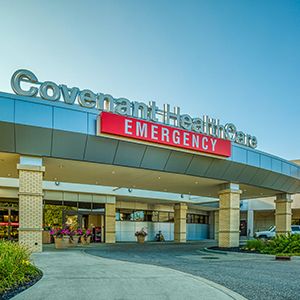How to decide if you should go to the emergency room

Sometimes a trip to the emergency room is a no-brainer: you have a severe injury, you lose consciousness, or you have intense pain. But patients with less obvious symptoms often decide to stay home and “tough it out.” And that could be a life-threatening choice.
Follow these guidelines to help make the best choice for your health.
Call 911 or have someone take you to the emergency room if:
You have symptoms of a heart attack. In the case of a heart attack or stroke, getting to the hospital quickly is critical. Symptoms of heart attack include:
- Uncomfortable pressure, fullness, squeezing or pain in the center of the chest that lasts more than a few minutes, or goes away and comes back
- Lightheadedness, fainting, cold sweat or nausea
- Shortness of breath and difficulty breathing
- Heart palpitations
- Unexplained anxiety, weakness or fatigue
Most heart attack patients will have some but not all these symptoms. If you have any of the above symptoms, get to the nearest emergency room.
You have symptoms of a stroke. The sooner stroke victims are treated, the better their chances are for survival and full recovery. Early signs of a stroke include:
- Sudden numbness or weakness of the face, arm or leg, especially on one side
- Sudden confusion or trouble understanding
- Sudden speech difficulties
- Sudden vision problems in one or both eyes
- Sudden dizziness or loss of balance
- Sudden severe headache with no apparent cause
For more information on stroke symptoms and prevention, see our earlier blog, “Stroke Awareness: Do you know the signs?”
You have any of these conditions or symptoms:
- Multiple injuries and/or possible broken bones
- Seizures
- Fever with significant pain or difficulty breathing, or any fever in infants 3 months or younger
- Severe allergic reactions
- Serious burns
- Bleeding that cannot be stopped/wounds that will not close
- Blood in urine, or diarrhea with blood
- Coughing or vomiting blood
- Vaginal bleeding or pelvic/abdominal pain during pregnancy
- Loss of consciousness
- Severe abdominal pain
- Severe headache or head injury (especially in those patients taking blood thinners)
This is not a complete list of every possible emergency symptom. If you believe your symptoms may be serious but are unsure, err on the side of caution and go to your nearest emergency room.
Emergency visits during COVID-19
If you have any of the serious symptoms listed above, do not hesitate to go to the emergency room because you fear getting infected with COVID-19. Covenant HealthCare is taking extraordinary measures to keep any patients with COVID-19 symptoms strictly separated from other, non-COVID patients. Patients are screened for symptoms before entering the Covenant Emergency Care Center. We are also following rigorous cleaning and disinfection protocols, and all workers are wearing masks for your protection.
Please do not ignore emergency health conditions! Our
Emergency Care Center is safe, and we’re here for you, now and always
Posted Date: 4/24/2020